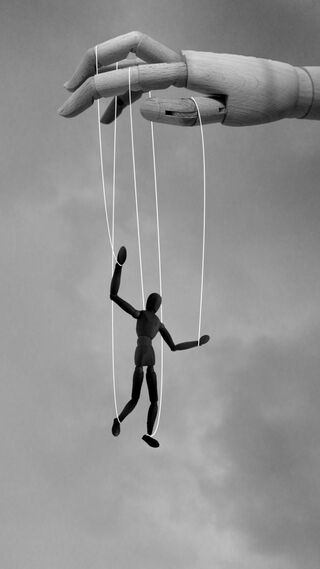Relationships
Why We Overvalue and Devalue People
How to escape automatic judgmental reactions.
Posted January 17, 2022 Reviewed by Devon Frye
Key points
- People can show emotionally conditioned patterns in the ways they devalue and overvalue themselves and others.
- Categorical judgmental responses to yourself and others often arise from your emotional reactions but can be lessened.
- Introducing the ability to observe and think critically about yourself and others overrides all-or-nothing ways of emotionally responding.
At times, we all put people in opposite categories. We deem some people saintly, others just awful. At times, we devalue ourselves, believing we are no good; at other times, we presume we hung the moon.
There are times and circumstances when we all overvalue and devalue ourselves and others. People also call this way of judging black-and-white, dichotomous, or all-or-nothing. Some people associate this practice with emotional or mental illnesses.
Patterns in All-or-Nothing Decisions
Personally, I do not believe these thought patterns are necessarily signs of mental or emotional illness. The recurring practices appear to take place in most people. And when I observe people exhibiting opposite conclusions in daily life, I perceive certain patterns in how we exercise these diametrically opposite views of ourselves and others in our relationships.
Overvaluing and devaluing responses vary because of the ways we are emotionally conditioned by parents during our childhoods—parents’ emotional responses to us shape our interactions with them and form our personality style. My colleague Homer B. Martin, M.D., and I find that parents can emotionally condition children into two roles: omnipotent and impotent.

Overvaluing and Devaluing by Omnipotent Personalities
Omnipotent personalities arise when children are emotionally conditioned to believe they are ultra-strong people who administer inordinate care to people perceived as weaker. They meet huge challenges head-on. “Can’t” or “won’t” are rarely in their vocabulary. They are lousy at self-care and rarely ask for help.
People living in omnipotent roles tend to be highly self-critical over any perceived imperfection. They devalue themselves easily. They can be their own worst enemies. They are overly critical of other omnipotent-role people because they unconsciously assume they are just like them. For fellow omnipotents, the standards are as unattainably high as for oneself. Any deviation from the high standard is reason to devalue or hold the other omnipotent person in low regard.
Omnipotent-role people have a different standard or criterion for evaluating impotent-role people. Omnipotents tend to overvalue impotents in spite of their helpless demeanor, inertness in relationships, and meager accomplishments. They believe impotents are smart, capable, and accomplished far beyond any real attributes demonstrated by them.

Overvaluing and Devaluing by Impotent Personalities
Impotent personalities are emotionally conditioned to believe they are helpless and ineffectual yet marvelous people of high value. They typically rely on others to solve problems, run interference, and make their lives smooth and unstressed. They are exceptionally good at demanding others do what they want.
People in the impotent role tend to value themselves highly, even excessively, and even when unwarranted and not in keeping with their actual behaviors and accomplishments. When they meet another impotent role person, they also believe they too have extraordinarily high value. It is like looking in a mirror and seeing their own prideful reflection.
When impotent personalities relate with omnipotent role people, they tend to devalue them. They do this even when the omnipotent has stellar accomplishments, helps them out a lot, and fulfills their requests. Since impotents overvalue themselves and people in their same role, they place little value on opposite role people. They can be abusive and derogatory to omnipotent personality people, all the while demanding more from them.
Emotional conditioning by parents creates automatic regimens in how we respond to ourselves and to others in relationships. These knee-jerk reactions take place outside our awareness. Both personalities can show automatic black-and-white responses in the ways they overvalue and devalue people. This can create misunderstandings and conflicts in relationships and harm the way people treat themselves.

How to Escape the Overvaluing-Devaluing Cycle
Young children often witness dual treatment of themselves and their siblings in their families. Parents sometimes use black-white, overvaluing-devaluing standards in raising children. Later on, children may observe the same automatic categorical responses from teachers and coaches. Adults can also spot such different labeling and attitudes in the workplace and in their marriages.
Overvaluing and devaluing responses can cause havoc in personal relationships. In reality, no one person holds all or none of the value in a relationship.
The way to decrease emotionally conditioned reactions is to discover methods of thinking, instead of responding automatically and emotionally. You do not have to be Pavlov’s dog and salivate when the feeder enters the room, even when bringing no food. Thinking about what to do in specific interpersonal situations will decrease your stereotyped responses to others.
If you become more aware of two things, you can decrease the tendency to devalue some people and overvalue others. First, determine whether you have an emotionally conditioned role––omnipotent or impotent––and observe how you regard yourself in terms of your appraisal of value and worth. Be honest. Take stock in a realistic way. We all have aspects of ourselves that are difficult to admit and acknowledge. Make a list to help you. Develop know-how in thinking critically. Support your conclusions about yourself with observations and data.
Second, scrutinize how you relate with others in your closest relationships. Identify any emotionally conditioned roles of close family, friends, and work relationships. Who do you admire a great deal? Do they deserve your admiration? Are you responding to their emotionally conditioned role without data that warrants such high regard? Alternatively, who do you put down, think ill of, or devalue? Do they actually display behaviors, attitudes, beliefs that support your low regard for them?
When you identify emotionally conditioned roles in yourself and others, you can more appropriately list reality-based observations about how you overvalue them or devalue them. You will be on your way to enhancing your relationships and will improve the way you treat yourself—grounded in reality, not with automatic emotionally conditioned roles, that ill serve you and others.




